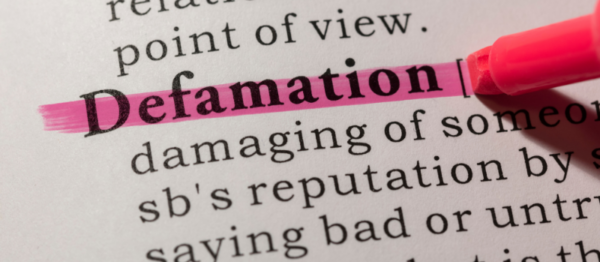Most people who watched the news coverage or live court proceedings of the Johnny Depp vs. Amber Heard defamation trial would probably agree on one thing: the couple—who finalized their divorce in January 2017—appeared to have a very dysfunctional relationship. Where people disagree is as to whether Heard was a victim of domestic violence at the hands of Depp, or whether she should be found guilty of defamation for falsely accusing Depp of domestic violence.
Now, the jury has spoken. On June 1, 2022, the jury unanimously agreed that Heard did defame Depp when she made three statements in a Washington Post article alluding to previous claims of domestic violence. They also said “yes” when asked if Depp provided clear and convincing evidence that Heard acted with malice on all three counts.
Depp was awarded $10 million in compensatory damages and $5 million in punitive damages, which was reduced to $350,000 based on the state of Virginia’s statutory cap.
The jury also awarded Heard $2 million in damages for her counterclaim, agreeing that one of three statements Depp’s lawyer made in the Daily Mail defamed Heard. Heard’s attorney told the Today Show that Heard plans to appeal the jury’s decision against her.
The court of public opinion had a field day with this case, which Depp initially filed back on March 1, 2019 and didn’t play out in a Virginia court until April 2022, due to the pandemic.
While I didn’t monitor every minute of the Depp vs. Heard defamation trial, the coverage I did see certainly resonates with me as a family law attorney who handles domestic violence cases on a regular basis. The Sisemore Law Firm has represented both victims of domestic violence and those who have been falsely accused of family violence—and these cases always come down to the evidence.
What was Johnny Depp trying to prove?
If you read the civil defamation lawsuit Depp filed against Heard with the Fairfax Circuit Court in Virginia, you get a pretty good picture of what he was trying to prove in court: that Heard falsely accused Depp of domestic abuse, both in court and in print, online and social media.
The crux of Depp’s case centered on the op-ed Heard published in the Washington Post on December 18, 2018, entitled, “I spoke up against sexual violence — and faced our culture’s wrath. That has to change.”
While she never mentioned Depp by name, Depp’s civil suit claims that the op-ed “depended on the central premise that Ms. Heard was a domestic abuse victim and that Mr. Depp perpetrated domestic violence against her.” Something Depp categorically denied in his lawsuit as being demonstrably false.
In his court filing, Depp claimed that Heard was lying when she appeared in court on May 27, 2016 with an “apparently battered face” to obtain a restraining order against Depp. Photos of Heard’s “apparently battered face” appeared in all of the tabloids and on social media.
Depp was seeking $50 million+ in damages on the grounds that Heard severely damaged Depp’s reputation and career by painting him as a domestic abuser. In the court filing, Depp further asserted that Heard knew her allegations were false and that her intent was malicious. The jury agreed.
How do cases of defamation and domestic abuse allegations play out and who should care?
If you have been a victim of family violence, have been falsely accused or are thinking about falsely accusing someone of domestic violence, you should care a lot.
Cases that involve allegations of domestic violence ultimately come down to the evidence presented in court. Whether abuse occurred or not, you can’t go into court and claim you were abused and not have the evidence to back it up.
The best evidence typically includes video and audio recordings, photographs and communications via email and text messaging. However, technology has made it easier to alter or fake photos, videos and even text exchanges, so the courts examine that evidence very closely.
It often takes years for victims of family violence to leave their abuser, due to fear, being manipulated or financial dependence on the abuser. If you’re in a relationship where violence is escalating, it’s critical to collect evidence and preserve it in a safe place (safety deposit box at the bank or with a trusted family member or attorney—NOT on a computer, phone or tablet the abuser could access).
If you’ve been assaulted by a domestic partner or family member, you should also call the police. They can assess the situation, make note of any injuries and file a police report that can also be used as evidence. That’s not to say the police will always haul away an abuser on the spot. I had a client who was beaten and concussed and because she wasn’t bleeding, the police didn’t do anything. That’s when you need to get to a safe place and call an attorney.
On the flip side of the coin, people who are planning to falsely accuse someone of domestic violence for personal, malicious or financial gain should know there are consequences for filing false family violence claims. You could face large fines or judgments against you (Depp was awarded $10 million+ in his judgment against Heard), and in a divorce or child custody suit, you could end up with a less than desirable financial or custody settlement.
The jury’s decision in Depp vs. Heard came down to what evidence they believed
While Heard’s defense didn’t present any evidence showing Depp assaulting Heard, an audio recording of Heard was played in court where she did admit to hitting Depp.
Heard’s defense did submit photographic and audio evidence alluding to alleged substance abuse issues by Depp, as well as a text exchange between Depp and actor Paul Bettany where the two joked about killing Heard. Evidence also included the photos of Heard she alleges were taken following the alleged May 21, 2016 assault, along with photos from December of 2015, which Heard says show her bruised face, scalp and a pile of hair on the floor after Depp allegedly pulled out her hair during a fight.
For Depp’s part, he claims in his March 1, 2019 court filing that Heard’s claims of domestic violence in the alleged May 21, 2016 incident have been “refuted conclusively by multiple, neutral third-party witnesses” and on videotape, which includes security footage from the Eastern Columbia Building, where Heard resided. Depp claims the witness testimony and video footage show Heard did not appear to have a battered face in the days immediately following the alleged incident on May 21, prior to Heard presenting her battered face to the court on May 27, 2016.
Of course, much more evidence was submitted and testimony heard in the Johnny Depp vs. Amber Heard defamation trial. While Johnny Depp did prevail in three counts of defamation against Heard, and Heard prevailed in one of her three counts of defamation against Depp, both parties have been crucified in the court of public opinion.
It appears that Heard is bearing the brunt of negative publicity during and immediately after the 2022 trial, while Depp took a huge hit to his reputation and career following Heard’s initial allegations and the publishing of her op-ed. Only time will tell whether Depp and Heard’s reputations and careers will rally after the dust settles.
If you are a victim of domestic violence or have been falsely accused of being abusive, contact an attorney to discuss your options.
Photo Source: Canva.com





